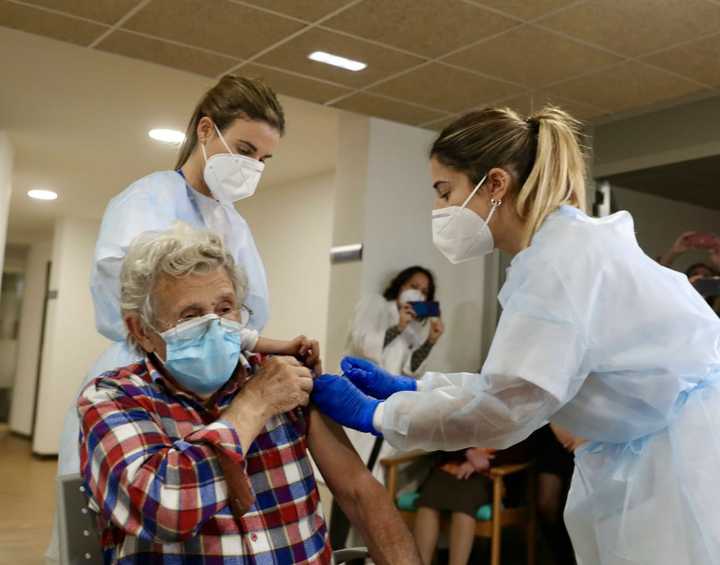Johnson & Johnson has been developing a single-dose vaccine for COVID-19, which has an efficacy rate of approximately 72 percent, potentially bringing another provider into the mix as vaccines for the virus have become a valuable and scarce commodity.
If it is ultimately approved by federal health officials, the Johnson & Johnson vaccine would join Pfizer and Moderna on the market, both of which require two doses administered approximately three weeks apart.
However, the efficacy rate in the new vaccine dropped from 72 percent in the United States to 57 percent in South Africa, where there is a new variant of the virus that has been rapidly spreading around the globe.
Overall, Johnson & Johnson said that the latest data from its clinical trials had a 66 percent effectiveness in preventing the virus, compared to Pfizer and Moderna, which are both at more than 94 percent effectiveness.
It is estimated that the South African strain, which is more transmittable, but has not been proven to be more lethal, could theoretically take over from COVID-19 as soon as April.
Infectious disease expert Dr. Anthony Fauci said in a recent interview that “If ever there was reason to vaccinate as many people as expeditiously as we possibly can with the vaccine that we have right now, now is the time.
“Because the fewer people that get infected, the less chance you’re going to give this particular mutant a chance to become dominant.”
According to recently released studies, the Johnson & Johnson vaccine could potentially limit the effect of other COVID-19 vaccines made by Pfizer-BioNTech, Moderna, and Novavax.
New York Gov. Andrew Cuomo said that the Johnson & Johnson vaccine has certain advantages, including it being a single dose and not requiring cold storage.
“We’re not in charge of (vaccines), and we have no knowledge of the efficacy against strains or how it compares to Pfizer or Moderna,” he said this week. “But it allows us to increase manufacturing capacity, and that’s the best way to get these drugs to scale."
Johnson & Johnson said that it will be applying for emergency authorization to administer the vaccine from the Food and Drug Administration as soon as next week, meaning doses could be distributed as soon as February once it receives clearance.
The company is expected to have approximately seven million doses ready if the FDA authorizes the vaccine, with nearly 30 million ready by April.
“This is a really great result,” Akiko Iwasaki, an immunologist at Yale University said in the New York Times. “I hope this vaccine gets approved as soon as possible to reduce disease burden around the world.”
Click here to follow Daily Voice Ossining and receive free news updates.
